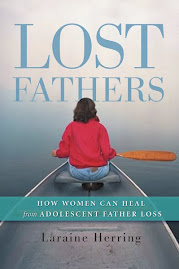A few weeks ago, Keith and I went to see Hector Olivera at the performance hall on campus. We went because there weren't enough tickets sold so the school was offering two for one tickets to faculty. I had never heard of Hector Olivera. I just knew I was starved for something different. How many times in one semester can we go to Target? To Barnes and Noble? To Ross? To Papa's Pizza?
I pretended we were going to the symphony in San Francisco and put on black velvet and crazy-high heels. I wore a pashmina wrap, tried to pretend we arrived on the train instead of the Subaru, tried to pretend we could walk, after the show, to any number of bistros and cafes for an after-show drink and dessert (um, Denny's anyone?). I am a writer. I have great imagination.
Hector Olivera is an Argentinian pipe organist. I won't pretend to know anything about music or about the pipe organ. I made it through a sketchy Fur Elise on the piano when I was a child, but that's the extend of my musical expertise. But without understanding music, I love it. Live music makes me cry just about every time, any kind. Live performances, even the not-so-great ones, take my breath away.
We arrived about ten minutes early. There were only a couple of hundred people there. We were the "young 'uns". Hector came out in his tuxedo, bowed, and began to play.
In between arrangements, he spun around and talked to us as if he were at Carnegie Hall instead of the Yavapai College Performance Hall. He told us of playing the funeral mass for Evita in Argentina when he was seven. He tried to make cowboy jokes. He has been touring internationally for decades. He has designed organs. And he is in love with late nineteenth and early twentieth century western United States history. He'd spent the afternoon at Sharlot Hall Museum, a local museum honoring Prescott's early settlers. He was enthralled and did a set of pieces for us focused on spaghetti westerns. He made the organ go "clop clop" to imitate the horses' hooves. He filled the room with an orchestra.
And, (here's where I fell in love) he had a friend named Harry. Harry is a stuffed green German Lutheran frog who sits on his organ and carries on conversations with him and the audience.
"He plays puppets!" I said to Keith, knowing at that very moment that Hector was a soul mate and a true artist. "Only a real artist would admit to playing puppets publicly."
But it got better than puppets. After the intermission, he introduced all the members of his orchestra. He nodded to invisible people on both sides of the organ. He had names for them. Personalities. Foibles. (The trumpet player drank too much. The violinist was always late.) He acknowledged all sections of his orchestra, then sat down to play, nodding to each invisible player at the appropriate time to enter the composition.
When he stood to bow, he commented on how silly he was. How he appreciated our patience while an old man played with his imaginary friends. But then, after the laughter, he said, "You are even more silly than me if you think I don't believe they are there."
And there you have it. That's what makes an artist -- a writer, a dancer, a painter, a musician, a singer, a sculptor. He believes in what and who he cannot see. He believes in these things enough to share them with a group of strangers in a small town in the mountains of Arizona. He believes in play enough to take his German frog Harry on the road with him across the world.
As writers, this play emerges as your characters. You are not making them up from nowhere. You are entering the spaces where they live. You must believe they are there. Only then, will they talk to you. It helps if you smile and open your arms a little, too.
I am in love with Hector Olivera, and I am sure that the world is a better place because he embodies his music, his not-so-imaginary orchestra, and his German frog Harry.
Hector and Harry working on the organ.














No comments:
Post a Comment